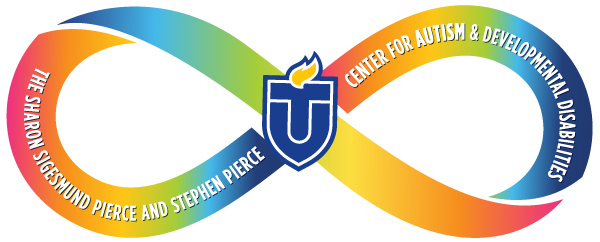
Services
The Pierce Autism Center provides Applied Behavior Analysis (ABA) therapy in Southern Nevada for children aged 18 months to 18 years who have autism spectrum disorder and other developmental disabilities.
Autism Spectrum Disorder (ASD)
According to the CDC, 1 out of every 36 children under the age 18 in the U.S. have some form of Autism Spectrum Disorder (ASD). 1 in 5 individuals in the United States have learning and attention issues according to a research report from The National Center for Learning Disabilities. This could be ADHA, OCD, dyslexia, anxiety, or neurodivergent disorders.
This means how the brain develops and processes information is different, but is in no way related to intelligence or prohibitive and just means kids need strategies and support to help them thrive. While getting an official diagnosis may be scary, it gives you the ability to better understand how your child is perceiving the world around them and better equip them moving forward.
Learn how to identify early warning signs and developmental milestones related to Autism Spectrum Disorder so you determine if you child needs further evaluation.
Applied Behavioral Analysis
The center offers Applied Behavior Analysis therapy, most commonly known as ABA therapy, that has grown to become the leading therapy for children aged 18 months up to 12 years of age with autism. Compassionate care is vital to the success of ABA therapy as it builds the trust between the behavioral therapist and the child. This is working to build a child up and encourage positive skill development.
You’ll be working with a team of experienced, qualified, and compassionate therapists who treat children with autism spectrum disorders and other developmental disabilities.
What is ABA Therapy?
ABA Therapy is the science dedicated to understanding and improving socially significant behaviors using various tools such as Discrete Trial Training, Naturalistic Intervention, and Pivotal Response Training.
By working closely with families, ABA can reduce problem behaviors and increase social and communication skills. Applied Behavior Analysis can help with:
- Reducing problem behaviors, including tantrums and outbursts, disruptive behaviors, stereotypic behaviors, and self-injurious behaviors
- Providing parent strategies and training
- Increasing appropriate adaptive behaviors
- Improving language and communication
- Developing social skills
- Improving academic skills
- Enhancing self-help skills
Our Approach

The Pierce Autism Center offers Focused ABA Therapy, a targeted approach focusing on specific behaviors or skills in a shorter period. It is often used when there is a need to address particular challenges or when individuals require more intensive behavioral intervention for a shorter duration.
In focused ABA therapy, behavior analysts identify specific problem behaviors or skills that need to be addressed and develop targeted strategies to address them. This type of therapy may involve techniques such as discrete trial training, which breaks down skills into smaller, more manageable steps.
Focused ABA therapy, utilizing ABA techniques, allows intense and focused intervention to address specific challenges and promote positive behavior change, including the development of behavioral skills.
Focused ABA therapy includes:
- Discrete Trial Training: A technique commonly used in focused ABA therapy involves breaking skills down into smaller, more manageable steps and providing repeated practice and reinforcement.
- Specific Strategies: Focused ABA therapy utilizes specific strategies to address targeted behaviors or skills. These strategies are tailored to each individual's unique needs and designed to promote positive behavior change.
- Development of New Skills: Focused ABA therapy aims to develop new skills or improve existing ones within a shorter period. It focuses on addressing specific challenges or goals rather than the broader range of skills targeted in comprehensive ABA therapy.
In focused ABA therapy, behavior analysts target specific skills and behaviors that must be addressed. This targeted approach allows for intensive intervention and promotes positive behavior change in areas of need.
Targeted skills and behaviors in focused ABA therapy include:
- First-step Behaviors: Focused ABA therapy often begins by targeting simple, foundational skills that serve as the building blocks for more complex skills. These first-step behaviors may include following instructions, making eye contact, or imitating actions.
- Desired Behaviors: Focused ABA therapy reinforces and promotes desired behaviors. This may involve teaching and reinforcing specific skills, such as social greetings, self-help, or appropriate communication.
- Problem Behaviors: Focused ABA therapy also addresses problem behaviors that may interfere with daily functioning or social interaction. Behavior analysts develop strategies to decrease problem behaviors and promote more appropriate alternatives.
Need More Information?
We are committed to providing support on every level. Contact us to learn how we can help!
